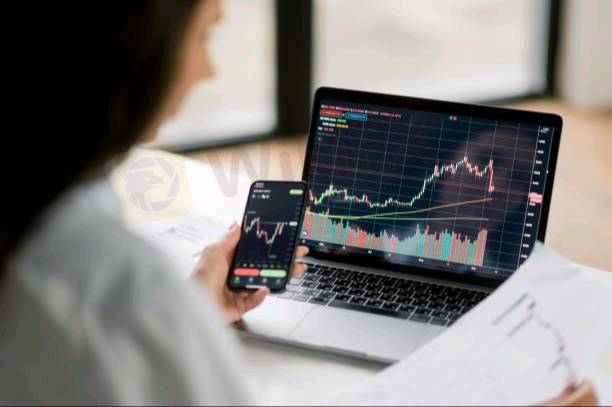
2025-01-29 06:01
Na indústriaRole of Blockchain Technology in Trading
#firstdealofthenewyearFateema
Blockchain technology, a decentralized and secure digital ledger system, has the potential to revolutionize financial markets and trading practices. This post explores the applications of blockchain in trading, its potential benefits, and the challenges associated with its widespread adoption.
Applications of Blockchain Technology in Trading
Blockchain technology can be applied to various aspects of trading, including:
Digital Asset Trading: Blockchain enables the creation and trading of cryptocurrencies, such as Bitcoin and Ethereum, as well as other digital assets like security tokens and utility tokens.
Trade Settlement and Clearing: Blockchain-based solutions can streamline trade settlement and clearing processes by reducing the need for intermediaries and enabling faster, more secure transactions.
Supply Chain Management: Blockchain can improve transparency and traceability in supply chains, facilitating the trading of goods and commodities while reducing the risk of fraud or error.
Benefits of Blockchain Technology in Trading
Blockchain offers several potential advantages for the trading ecosystem:
Decentralization and Security: By eliminating the need for centralized intermediaries, blockchain technology enhances security, reduces counterparty risk, and lowers the potential for fraud or manipulation.
Efficiency and Cost Savings: Blockchain-based solutions can expedite trade settlement times, reduce transaction costs, and improve operational efficiency, benefiting both traders and financial institutions.
Transparency and Accessibility: The transparent and immutable nature of blockchain transactions can enhance trust and accountability, potentially widening access to financial markets for underserved individuals and communities.
Challenges and Limitations
While blockchain technology holds great promise for trading, several challenges must be addressed for its widespread adoption:
Regulatory Uncertainty: The legal and regulatory framework for blockchain-based trading is still evolving, creating uncertainties for market participants and potential barriers to innovation.
Scalability and Performance: Existing blockchain networks may struggle with scaling issues and slow transaction processing times, limiting their potential for large-scale trading applications.
Adoption and Interoperability: For blockchain technology to reach its full potential in trading, widespread adoption and seamless integration with existing financial infrastructure are necessary, which may take time and require significant investment.
In conclusion, blockchain technology has the potential to transform trading practices by enabling decentralized, secure, and efficient transactions across various asset classes. While challenges remain, ongoing innovation and collaboration among stakeholders can pave the way for a future where blockchain plays a central role in the evolution of financial markets.
Gostar 0
FX3347547979
交易者
Discussões populares
Análise de mercado
Brasileiros FX
Análise de mercado
Brasileiros no FOREX
Análise de mercado
Don't buy Bitcoin now! Look at my review and description in the print!
Análise de mercado
análises do mercado financeiro ao vivo confira
Na indústria
Não consegui sacar meus peofits
Na indústria
Não é possível retirar
Categoria do mercado

Plataforma

Exibições

IB

Recrutamento

EA

Na indústria

Mercado

Índice
Role of Blockchain Technology in Trading
 Paquistão | 2025-01-29 06:01
Paquistão | 2025-01-29 06:01#firstdealofthenewyearFateema
Blockchain technology, a decentralized and secure digital ledger system, has the potential to revolutionize financial markets and trading practices. This post explores the applications of blockchain in trading, its potential benefits, and the challenges associated with its widespread adoption.
Applications of Blockchain Technology in Trading
Blockchain technology can be applied to various aspects of trading, including:
Digital Asset Trading: Blockchain enables the creation and trading of cryptocurrencies, such as Bitcoin and Ethereum, as well as other digital assets like security tokens and utility tokens.
Trade Settlement and Clearing: Blockchain-based solutions can streamline trade settlement and clearing processes by reducing the need for intermediaries and enabling faster, more secure transactions.
Supply Chain Management: Blockchain can improve transparency and traceability in supply chains, facilitating the trading of goods and commodities while reducing the risk of fraud or error.
Benefits of Blockchain Technology in Trading
Blockchain offers several potential advantages for the trading ecosystem:
Decentralization and Security: By eliminating the need for centralized intermediaries, blockchain technology enhances security, reduces counterparty risk, and lowers the potential for fraud or manipulation.
Efficiency and Cost Savings: Blockchain-based solutions can expedite trade settlement times, reduce transaction costs, and improve operational efficiency, benefiting both traders and financial institutions.
Transparency and Accessibility: The transparent and immutable nature of blockchain transactions can enhance trust and accountability, potentially widening access to financial markets for underserved individuals and communities.
Challenges and Limitations
While blockchain technology holds great promise for trading, several challenges must be addressed for its widespread adoption:
Regulatory Uncertainty: The legal and regulatory framework for blockchain-based trading is still evolving, creating uncertainties for market participants and potential barriers to innovation.
Scalability and Performance: Existing blockchain networks may struggle with scaling issues and slow transaction processing times, limiting their potential for large-scale trading applications.
Adoption and Interoperability: For blockchain technology to reach its full potential in trading, widespread adoption and seamless integration with existing financial infrastructure are necessary, which may take time and require significant investment.
In conclusion, blockchain technology has the potential to transform trading practices by enabling decentralized, secure, and efficient transactions across various asset classes. While challenges remain, ongoing innovation and collaboration among stakeholders can pave the way for a future where blockchain plays a central role in the evolution of financial markets.
Gostar 0
Também quero comentar.
Perguntar
0Comentários

Ainda não há comentários. Faça o primeiro.

Perguntar
Ainda não há comentários. Faça o primeiro.